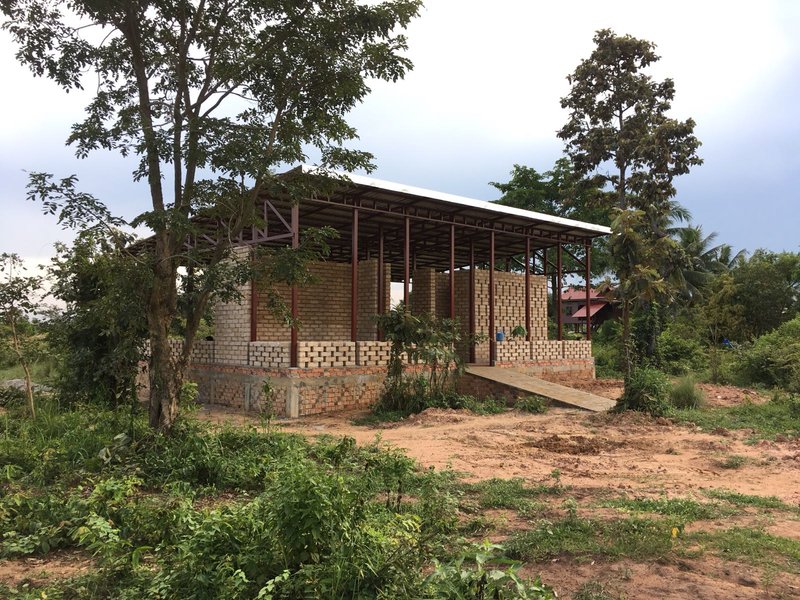Agriculture Training and Youth Motivation in NW Cambodia - Planning and Building

Guest Post by ECHOcommunity member: Muneezay Jaffery
This is part 2 of a series describing how one network organization is progressing with development of training facilities and curriculum.
Planning & Building
As mentioned in part 1, Green Shoots is lucky to have a whole host of inspirations (such as permaculture, agroecology and farmer field schools and local projects) and pride themselves on being a small NGO that perpetually monitors and evaluates its activities.
Whilst working on the planning and build, our aim was to “repackage” what horticulture means within a rural community. One main strategy was to include low cost, affordable tech within the space. Our bottom line for decision-making was “is it replicable? How much will it cost? What are the benefits?” Ultimately we wanted to set examples from the get go and some of them are:
- Earth block making
- Rain-water harvesting and water filtration
- Eco-toilet with biogas
- Conservation agriculture techniques / no-till farming
Construction began in August 2018 after immense and ongoing fundraising in the UK, we contracted the main foundations to one Cambodian company and other small jobs were given to local workers- many of whom could potentially send their children here. During the construction weeks, youth from high-school and secondary school and the local villages were invited for workshops to get a taster of what they would learn and the success can be seen in regular attendance.
There was a keen interest to get volunteers involved in the building work and, treading cautiously, Green Shoots arranged two weeks to one month volunteer stints which focused on conducting and participating in youth workshops and working design and prototypes. For us this struck a balance in volunteer engagement but maintaining local employment for the build and skill transfer.
A few anticipated problems were the looming rainy season- which could potentially delay work on site and the subsequent rice harvest that would siphon off all our labour force. 80% of Cambodia lives in rural areas and farming rice is an essential way of life for this chunk of the population. However, the rains were sporadic, allowing work to continue and in turn the rice harvest failed for many farmers. This meant labourers were available but the prices were hiked up, as many had farming related debts to pay. Nonetheless, work persevered and, in a miraculous turn of events, our rigid site plan took a fluid approach playing up to the natural vegetation patterns and permaculture principles to appreciate curves and edges. The building makes use of a metal frame, bamboo, thatch and earthblocks. All the bricks on site have been made on site, using earth from where we have dug the ponds.



